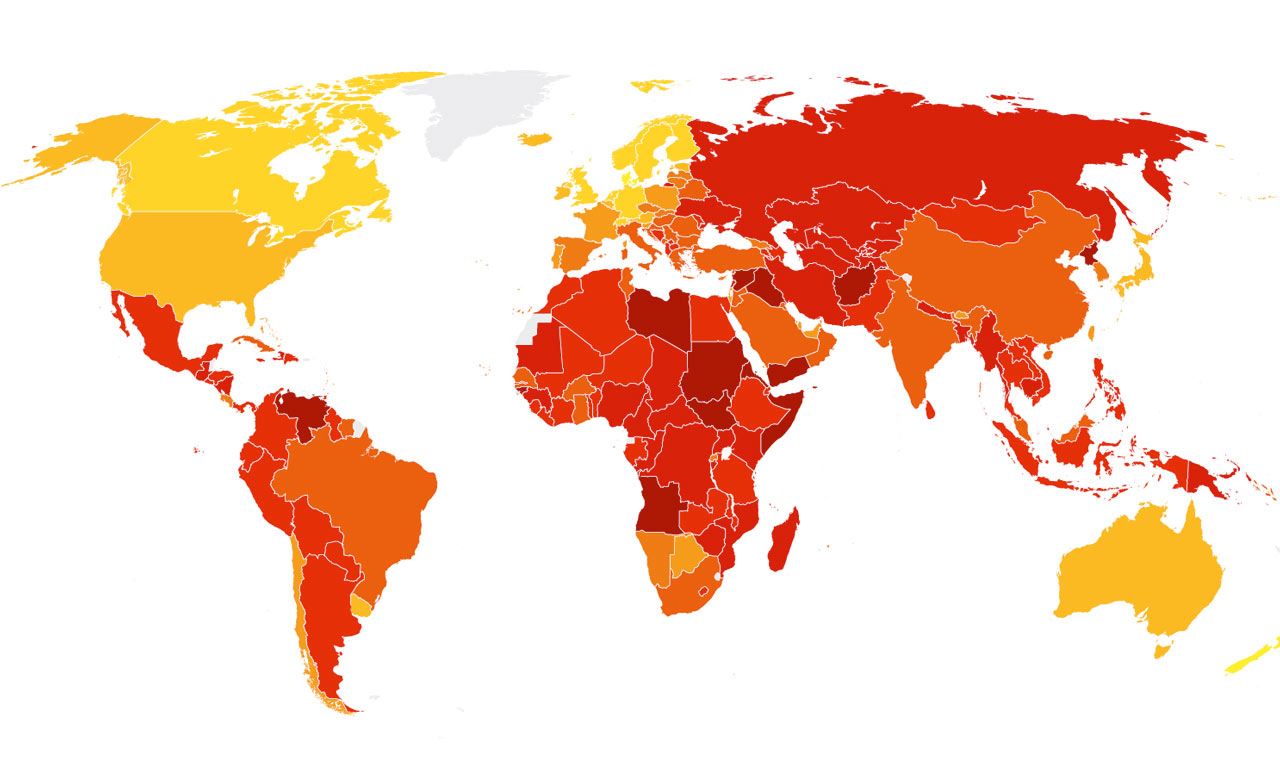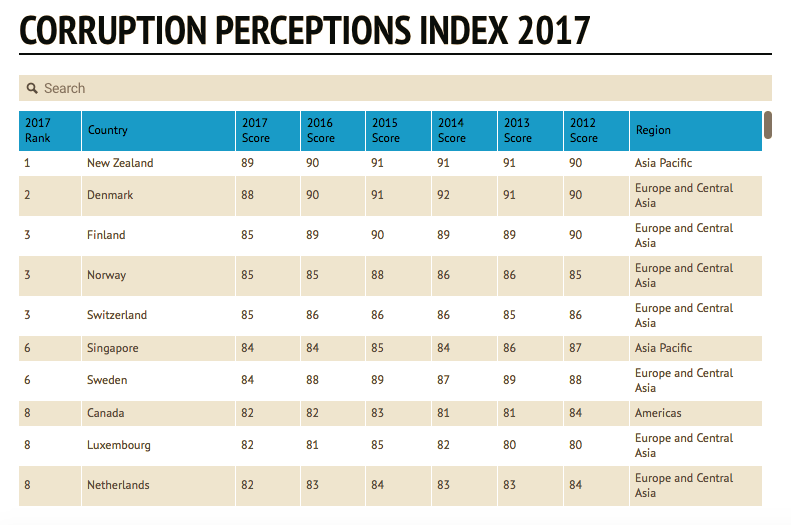Interesting
See the Most Corrupt Countries in the World Ranked and Mapped
Transparency International, an organization against corruption, has recently released its latest Corruption Perception Index. The newest edition maps and ranks the world’s most corrupt countries. According to the organization, the index sadly shows that majority of the countries are making little to no progress in ending corruption.
The Corruption Perception Index 2017 compiles data from 13 surveys and assessments, and assigns a score to 180 countries based on how corrupt they are as perceived by business people and experts who live there. A scale of 0 to 100 is used, where 0 is highly corrupt and 100 is very clean.
This year, the index shows more than two-thirds of countries score below 50.
This performance, when compared to recent years, is not surprising. The Corruption Perception Index 2017 also reveals that journalists are more at risk in corrupt countries:
“Further analysis of the results indicates that countries with the least protection for press and non-governmental organisations (NGOs) also tend to have the worst rates of corruption.
“Every week at least one journalist is killed in a country that is highly corrupt.
“The analysis, which incorporates data from the Committee to Protect Journalists, shows that in the last six years, more than 9 out of 10 journalists were killed in countries that score 45 or less on the index.”
New Zealand and Denmark take the top two spots in the index.
The countries score 89 and 88, respectively. On the other hand, at the very bottom of the list are Syria, South Sudan, and Somalia with the lowest scores of 14, 12, and 9 respectively.
Singapore ranks 6th (score of 84), Canada 8th (82), Australia 13th (77), United States 16th (75), Japan 20th (70), and China 77th (41).
Western Europe is considered the best performing region with an average score of 66.
According to the index, several countries have also shown significant improvement since 2012, including Côte d’Ivoire, Senegal, and the United Kingdom.
Meanwhile, Sub-Saharan Africa (with an average score of 32) and Eastern Europe and Central Asia (with an average score of 34), are the worst performing regions in this year’s index.
Transparency International also shared its recommendations, one of which is:
“Governments should minimise regulations on media, including traditional and new media, and ensure that journalists can work without fear of repression or violence. In addition, international donors should consider press freedom relevant to development aid or access to international organisations.”

-
OMG6 years ago
Man Iced Neighbor Who Repeatedly Asked Him “When Are You Getting Married?”
-
Interesting7 years ago
The Secret Meaning of Anklets And Why Some Wives Wear Them
-
Interesting7 years ago
Waking Up Between 3 to 5 AM Could Mean You’re Experiencing Spiritual Awakening
-
Interesting6 years ago
Pork Fat Is Officially One of the World’s Most Nutritious Foods

































